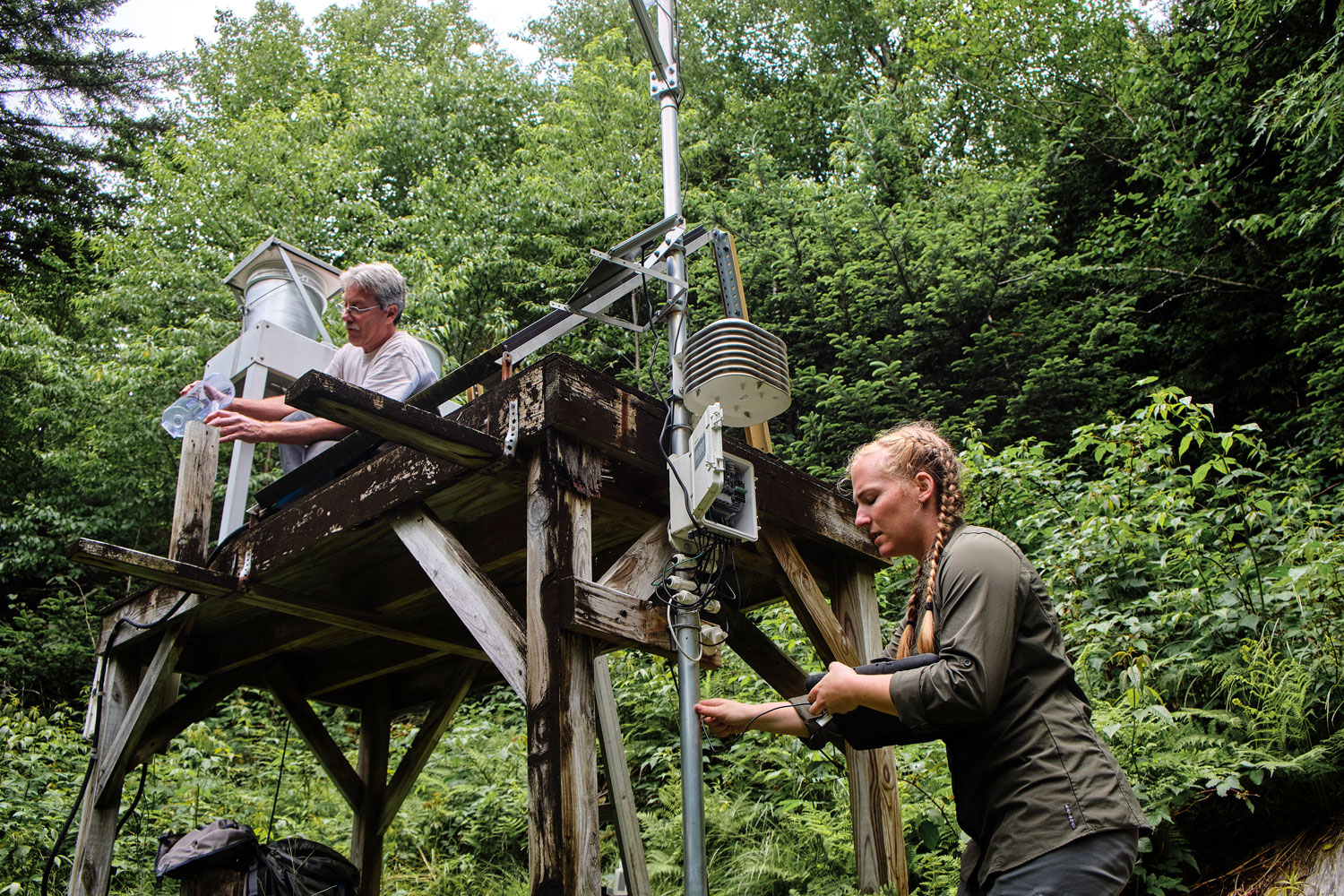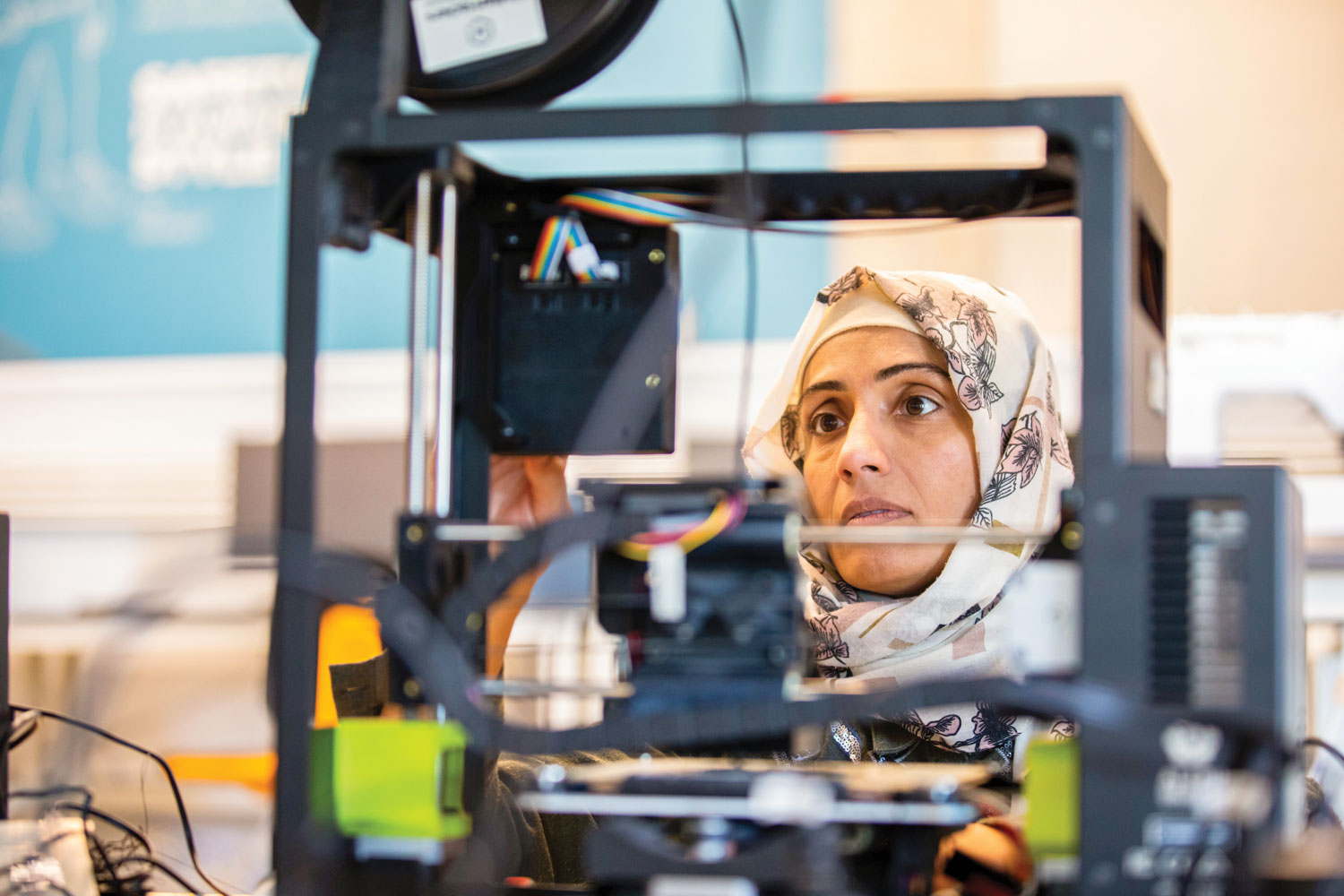The UT Board of Trustees voted in March to approve new academic degrees and departments that will offer students innovative and modern skill sets that meet growing workforce needs.
“UT is here to serve our students and the people of Tennessee,” said Chancellor Donde Plowman. “We are grateful to the Board of Trustees for their support as we create more capacity to educate students and launch innovative new degree programs that equip graduates with knowledge, skills, and credentials to thrive in an evolving economy.”

CEE To Offer State’s First Environmental Engineering Bachelor of Science
By Izzie Gall.
Beginning this fall, the Department of Civil and Environmental Engineering will offer a Bachelor of Science in Environmental Engineering degree, the first to be offered in Tennessee.
The department already offers an undergraduate minor in environmental engineering, but the only degree in the subject that UT currently confers is a master’s in science.
“Historically, environmental engineering education has been focused at the graduate level,” said CEE Department Head and Robert M. Condra Professor Chris Cox. “However, the University of Tennessee is seeking to develop new degrees that leverage emerging trends to meet both societal needs and student interests, and enthusiasm for undergraduate-level environmental engineering education has been growing across the US.”
The major includes technical courses taught by nine different units outside CEE. Four new courses cover topics such as sustainability, environmental process fundamentals, and chemicals in the environment (including risk assessment and transport of chemicals). The degree will include a senior design project in which students apply their knowledge in real-world environmental engineering design.
Many of the world’s biggest challenges run through engineering, and the programs we are creating are in great demand. These new degree programs and departments are reflective of our strategic commitment to meeting the state and national need to produce a highly-skilled engineering workforce and conduct research at the highest levels of significance and societal impact.”

ISE to Offer Region’s First Doctor of Engineering Degree
By Izzie Gall.
The Department of Industrial and Systems Engineering has been approved to create a Doctor of Engineering program, the first of its kind in Tennessee and in the region.
Like the PhD program currently offered by ISE, the DEng program requires students to enter with a master’s degree and culminates in a capstone project. However, while the PhD program focuses on foundational research, a DEng degree emphasizes practice and application.
“The DEng degree is designed for working professionals who want to pursue a doctoral-level degree while working full time,” said Mingzhou Jin, John D. Tickle Professor and ISE department head. “Our new program will be especially valuable for professionals in the industry and public sectors who have backgrounds in engineering and science and want to take on more leadership responsibilities.”
To facilitate attendance by professionals, ISE will allow students to attend courses either in person or fully online (asynchronously). In addition to advanced engineering, technology, and business management courses, the curriculum will cover emerging technologies such as machine learning and artificial intelligence.
The new degree program is expected to begin in August.

TCE Creates New Department of Applied Engineering and Technology
By Rhiannon Potkey.
To help meet industry demand and better serve the university’s land-grant mission, the Tickle College of Engineering is creating a new Department of Applied Engineering and Technology. The undergraduate degree programs will prepare students to directly enter the workforce, with an emphasis on hands-on and applied experience.
The college plans for the new department to offer degrees with different focus areas that include applied manufacturing engineering, applied aerospace engineering, energy storage and conversion, and applied computer science and technology. The first program is expected to launch in the fall of 2025, pending approval by the Tennessee Higher Education Commission.
Students will be required to partake in an internship or co-op experience as part of their degree fulfillment. A reduced ACT score requirement and additional coursework in applied engineering mathematics will provide access to students who do not meet the mathematics requirement for admission to traditional engineering programs.
“We believe this new department helps better meet our land-grant mission to serve the needs of our state,” said Matthew Mench, dean and Wayne T. Davis Dean’s Chair of the college. “We do an excellent job of traditional engineering curriculum from the baccalaureate to the PhD level, but since I have been dean, I have heard from so many of our employers that there is a need for this new department. This will help fill those needs and further strengthen our partnerships with industry.”
Biomedical Engineering to Become Independent Academic Department
By Kathy Williams.
The Department of Mechanical, Aerospace, and Biomedical Engineering will soon split into two distinct units: the Department of Mechanical and Aerospace Engineering and the Department of Biomedical Engineering. Following appropriate state approvals, a yearlong transition period, and appointment of an inaugural department head, the new BME department will launch in August 2025.
A transitional BME program director will be named later this semester, and a national search for a permanent department head will begin this fall. About 10 core tenured and tenure-track faculty members will transition over to the new department, with additional adjunct and affiliate appointments to be determined.
The separation will allow BME to grow, define its new identity in terms of research thrusts, strengthen specialization in its curriculum, improve external recognition, and increase its national identity. The split will also help MAE programs grow and define their unique identity, marketing, recruitment, research focus, and strategic plan.
“This is a great time for the BME program to become its own department and define its new identity,” said Kivanc Ekici, MABE department head and John W. Fisher Professor. “This move will allow growth in all three programs in terms of number of faculty lines, undergraduate and graduate student enrollments, as well as new research directions. The fact that current BME faculty are in support of this change further confirms that the time is right for the move.”
